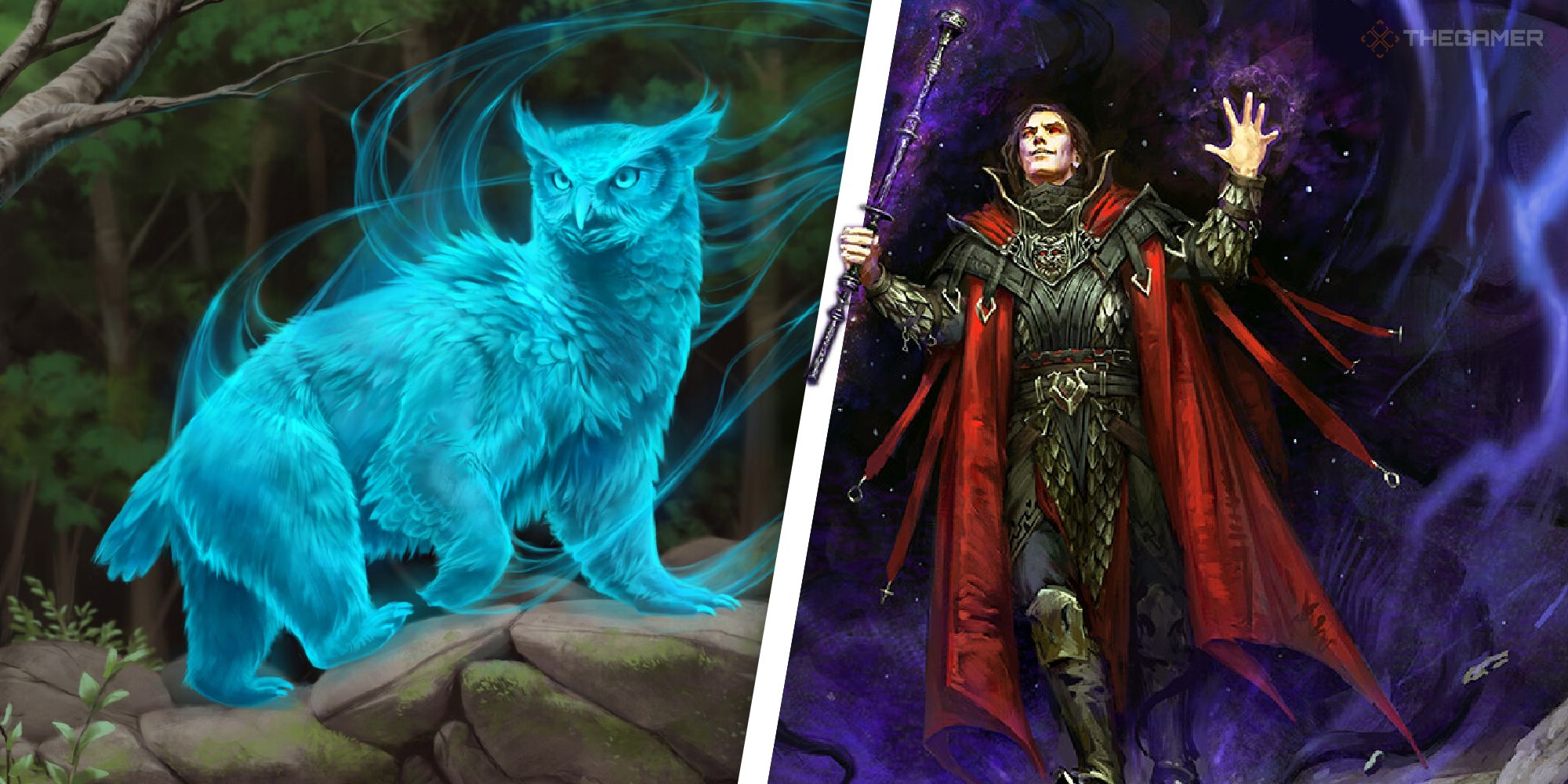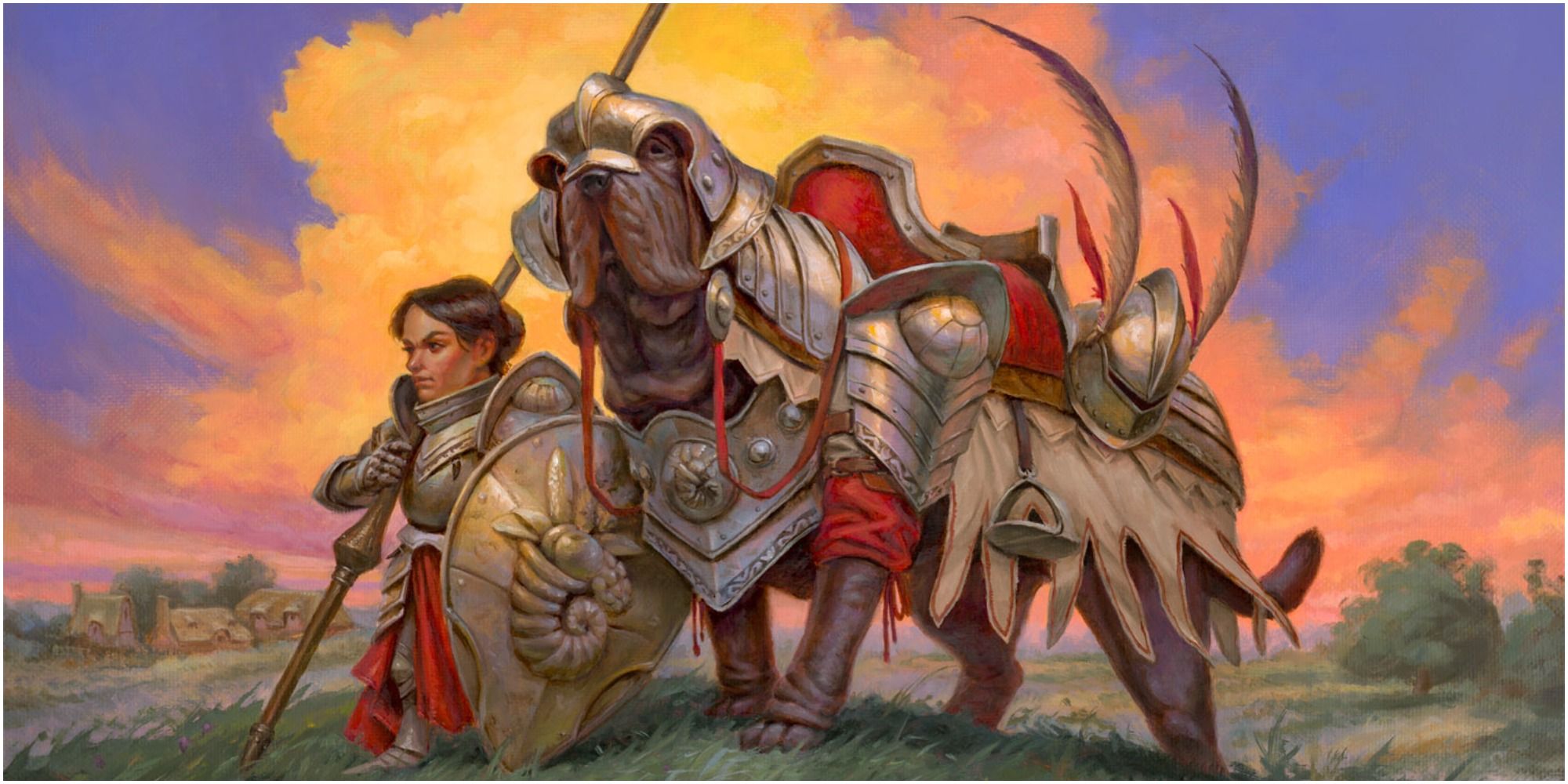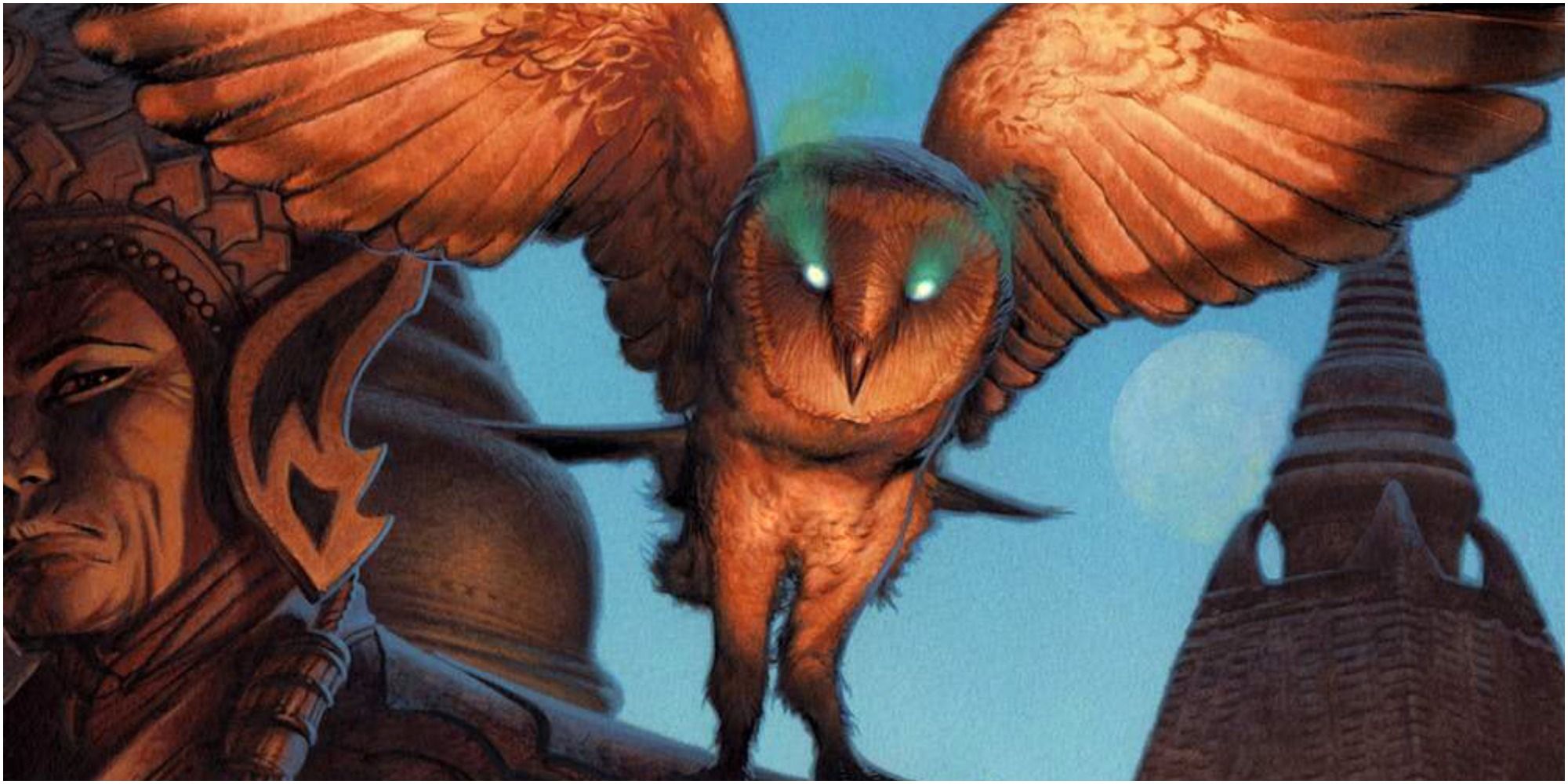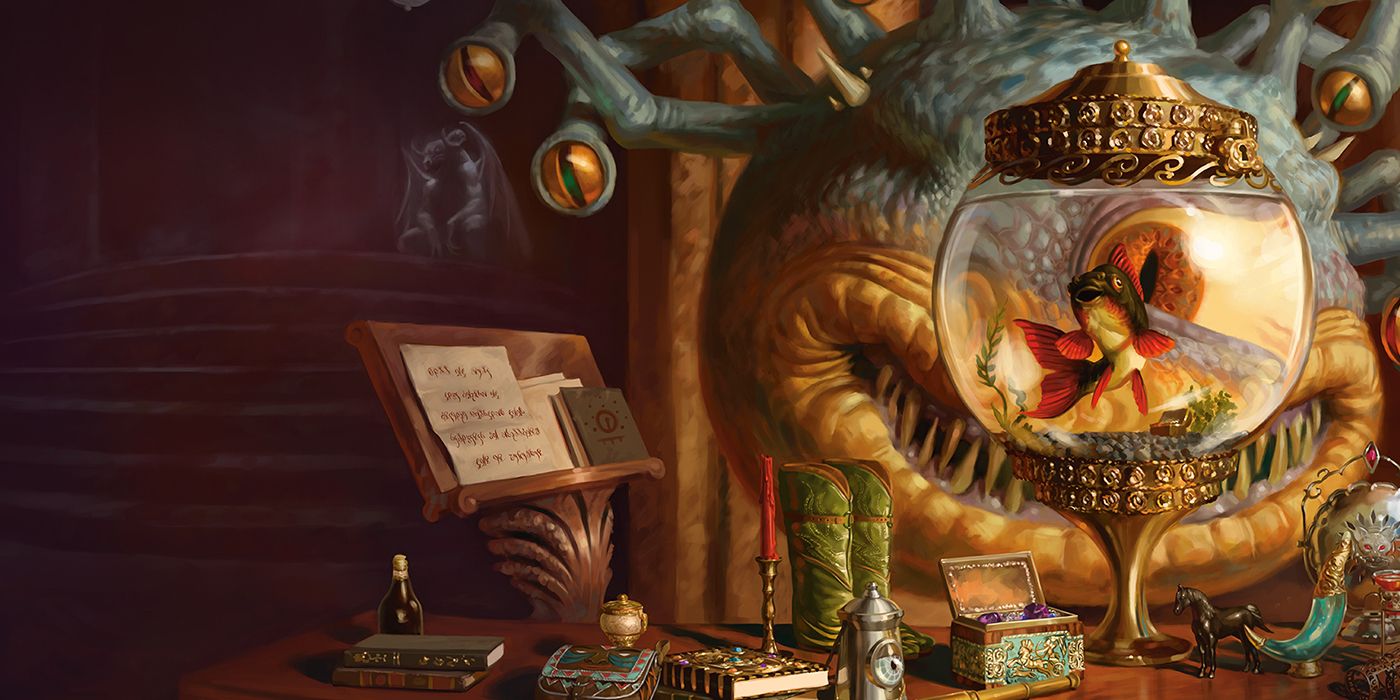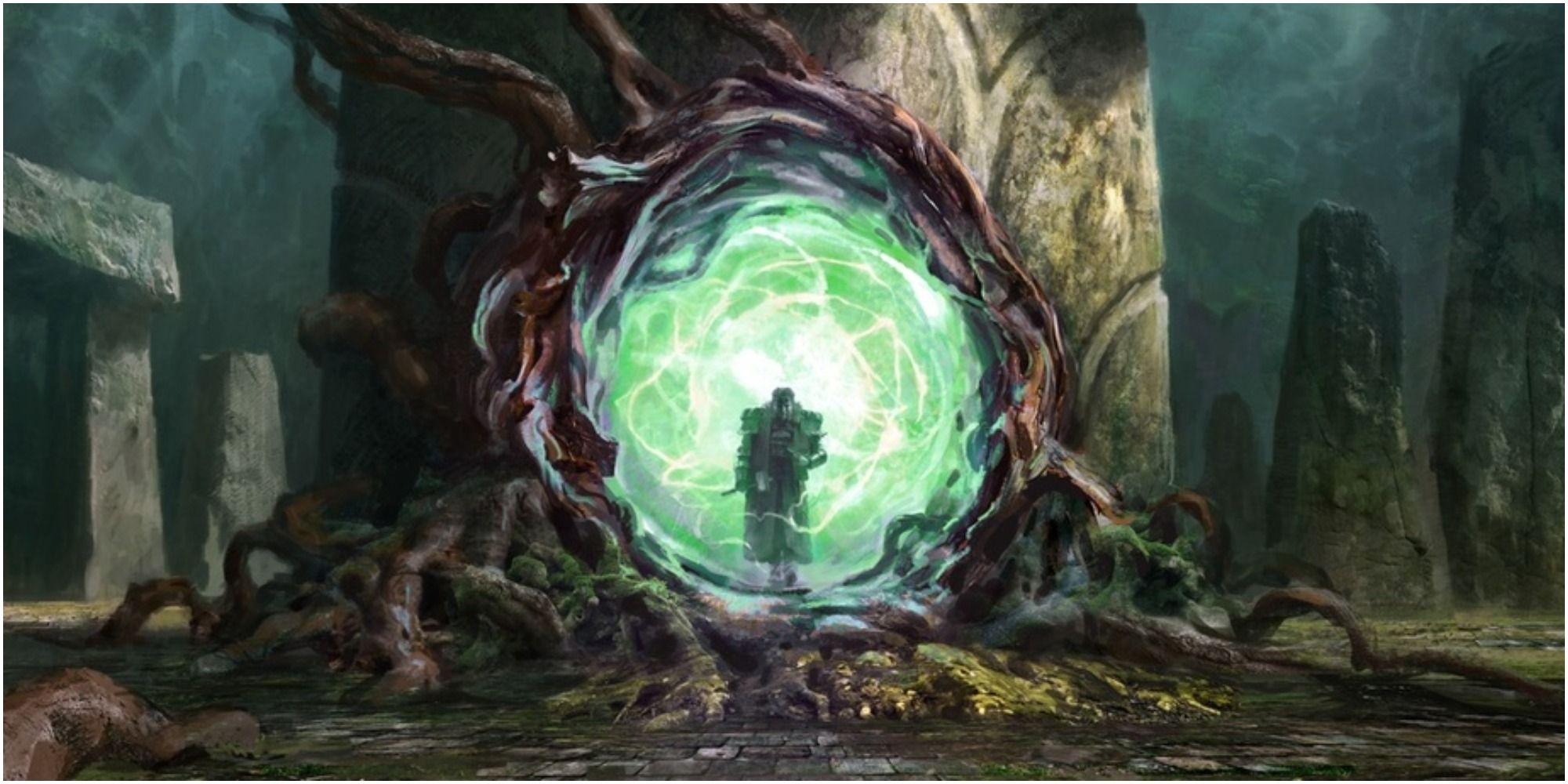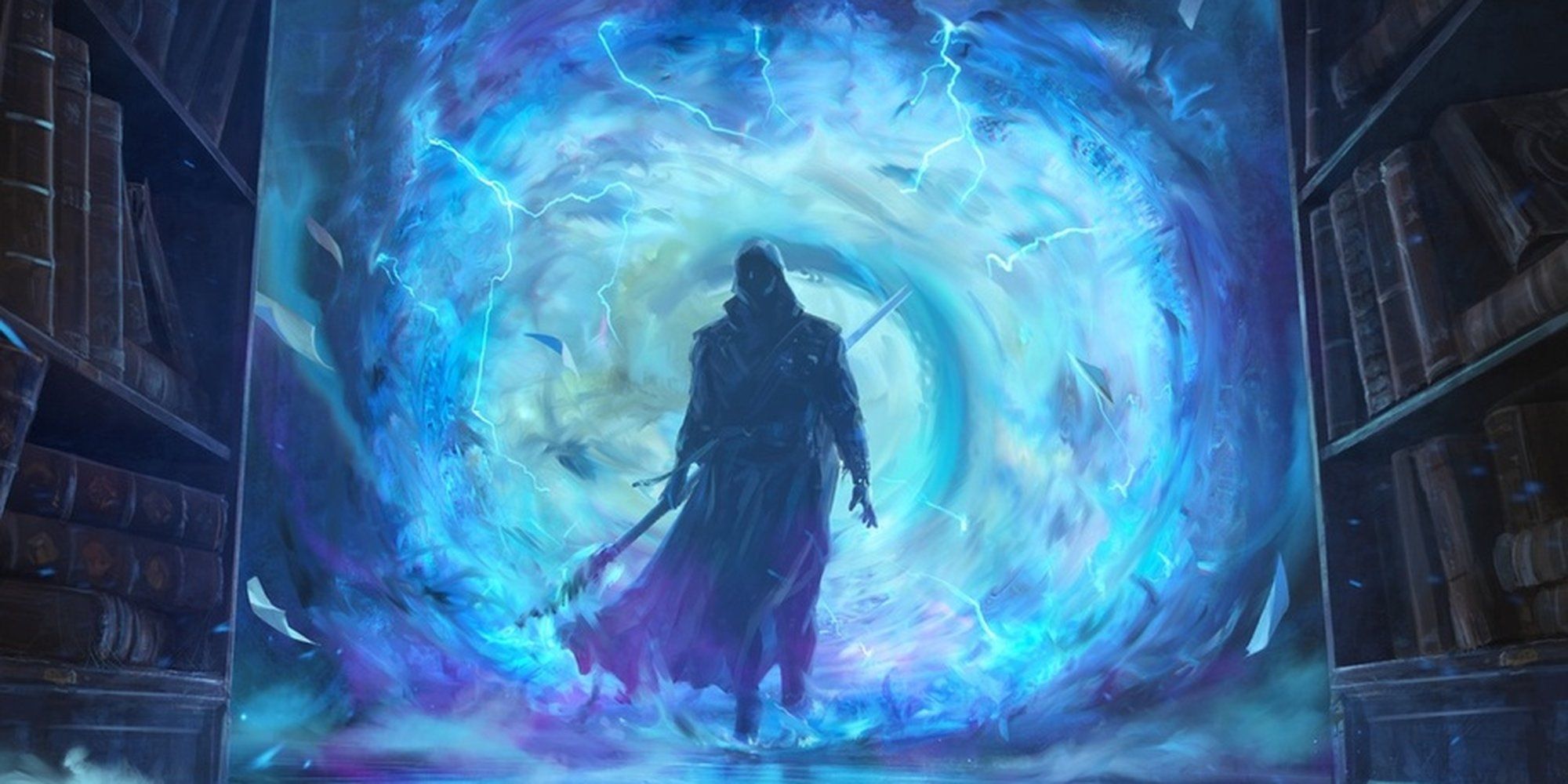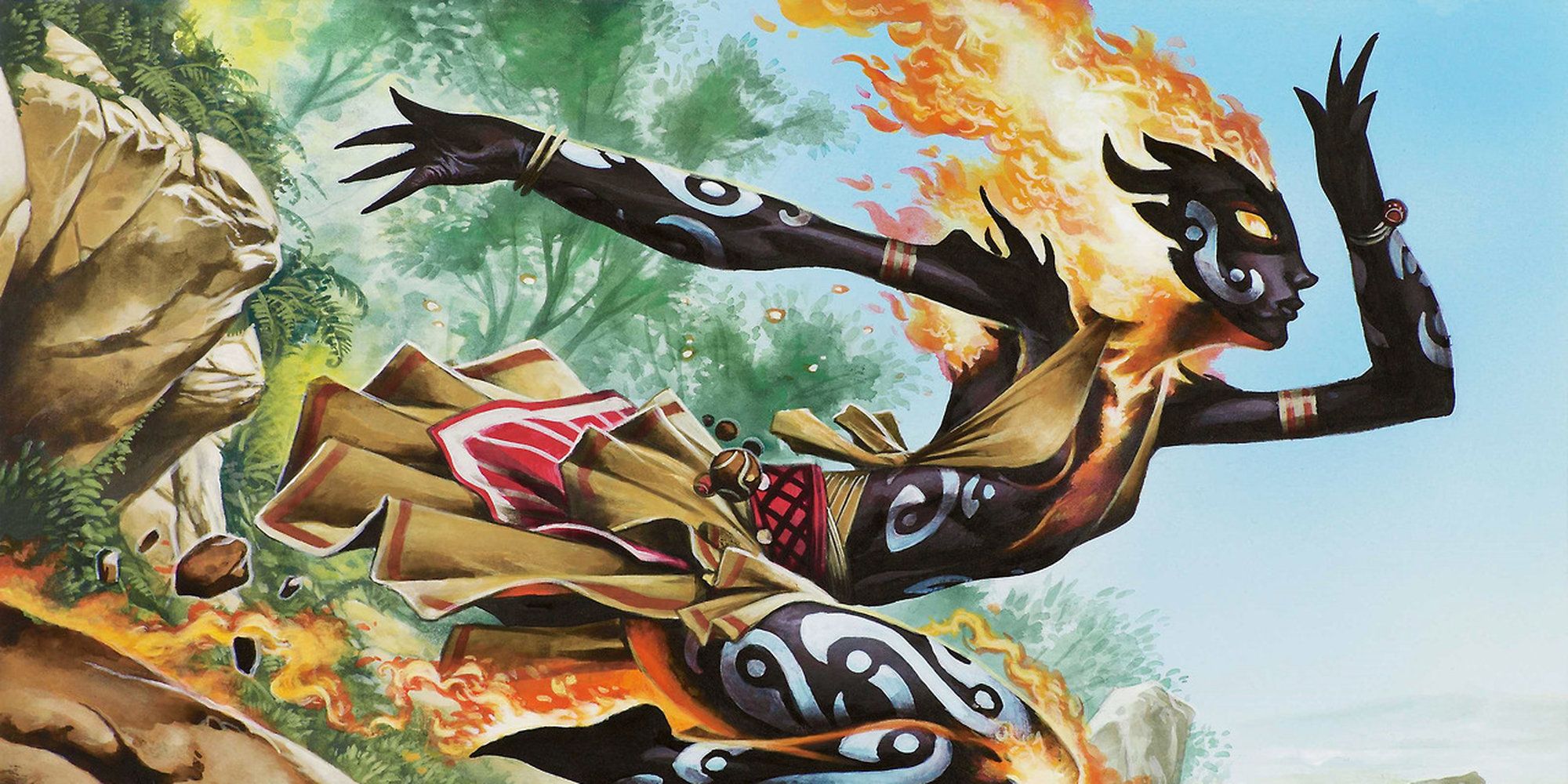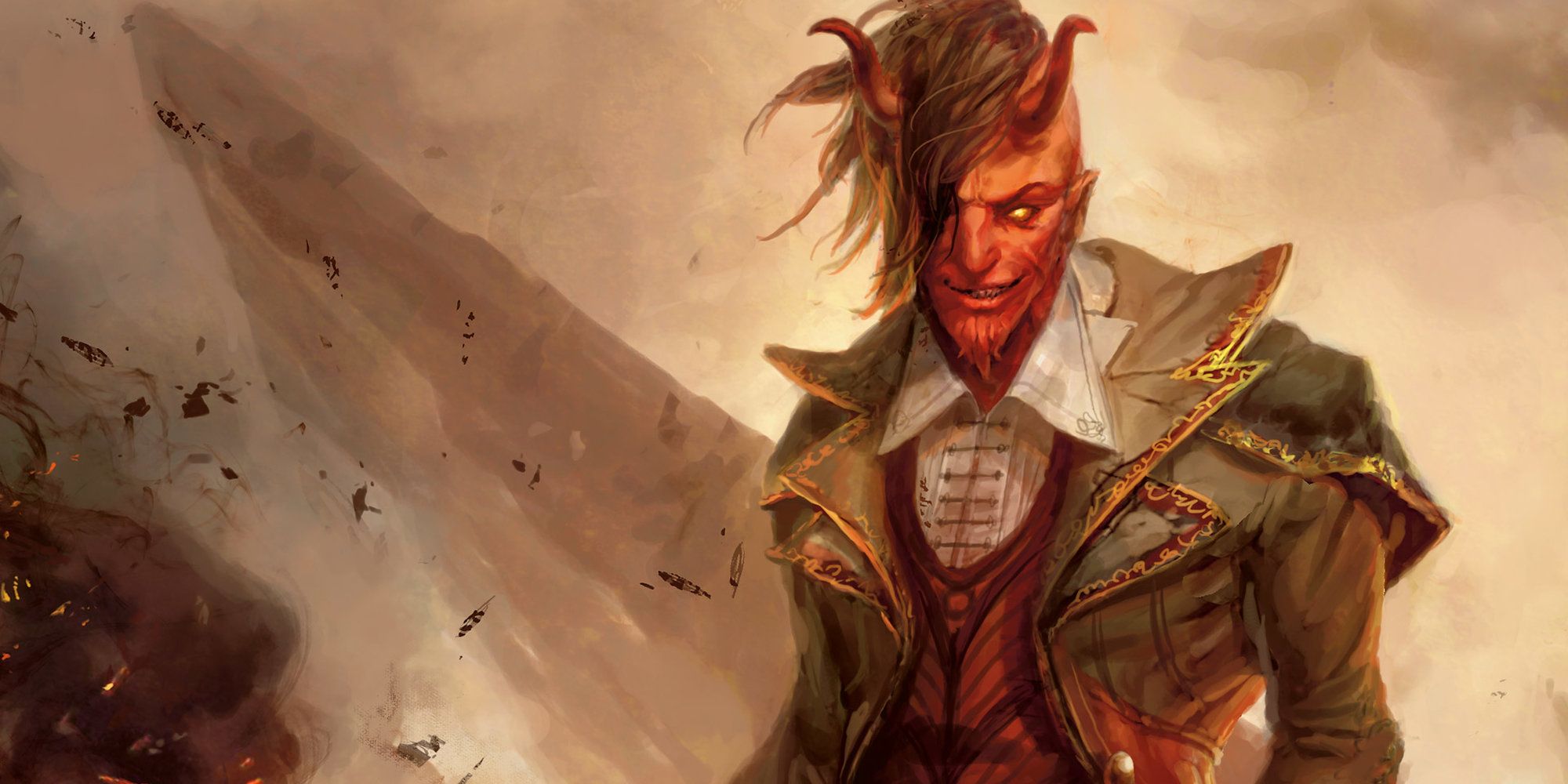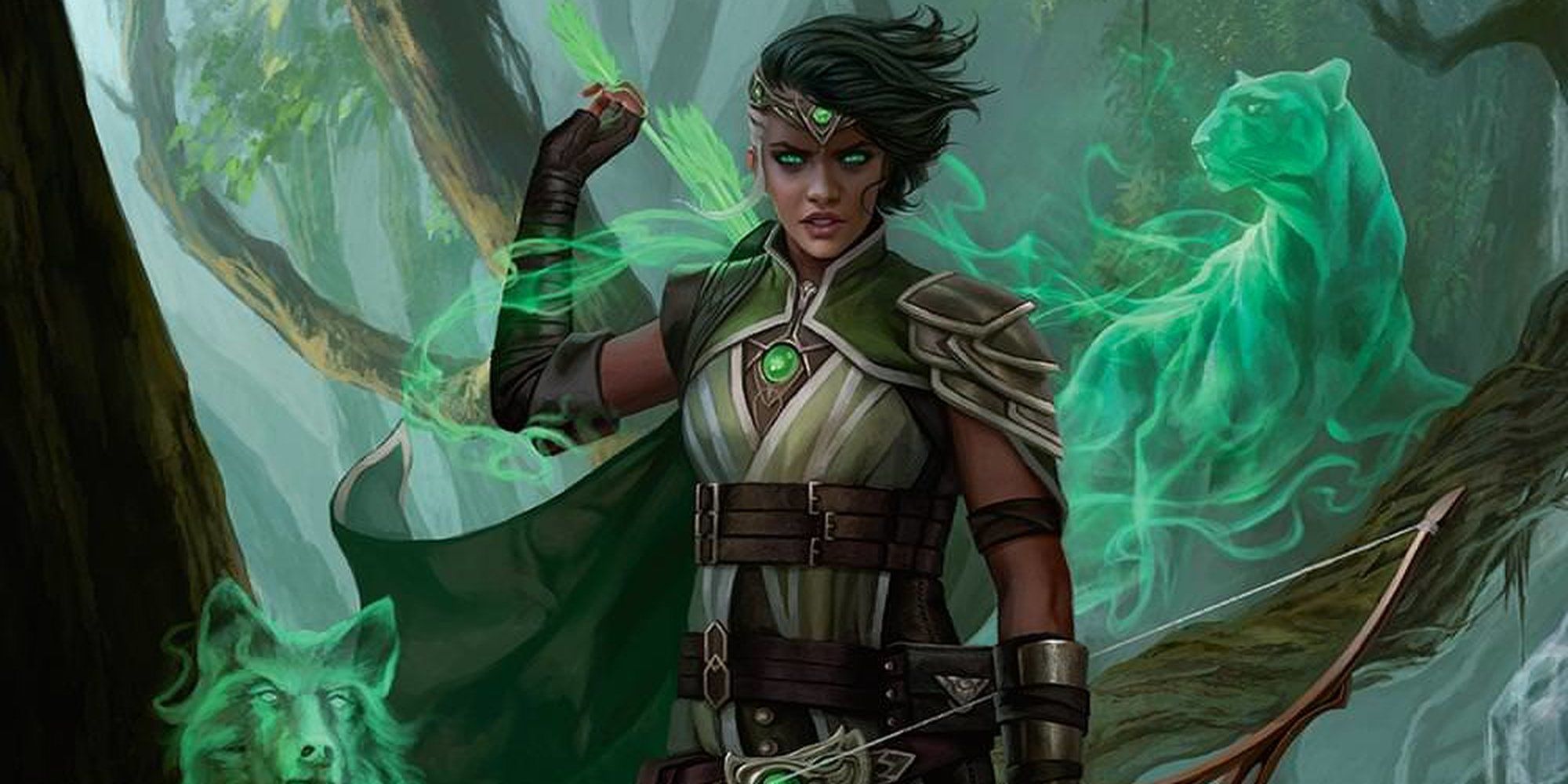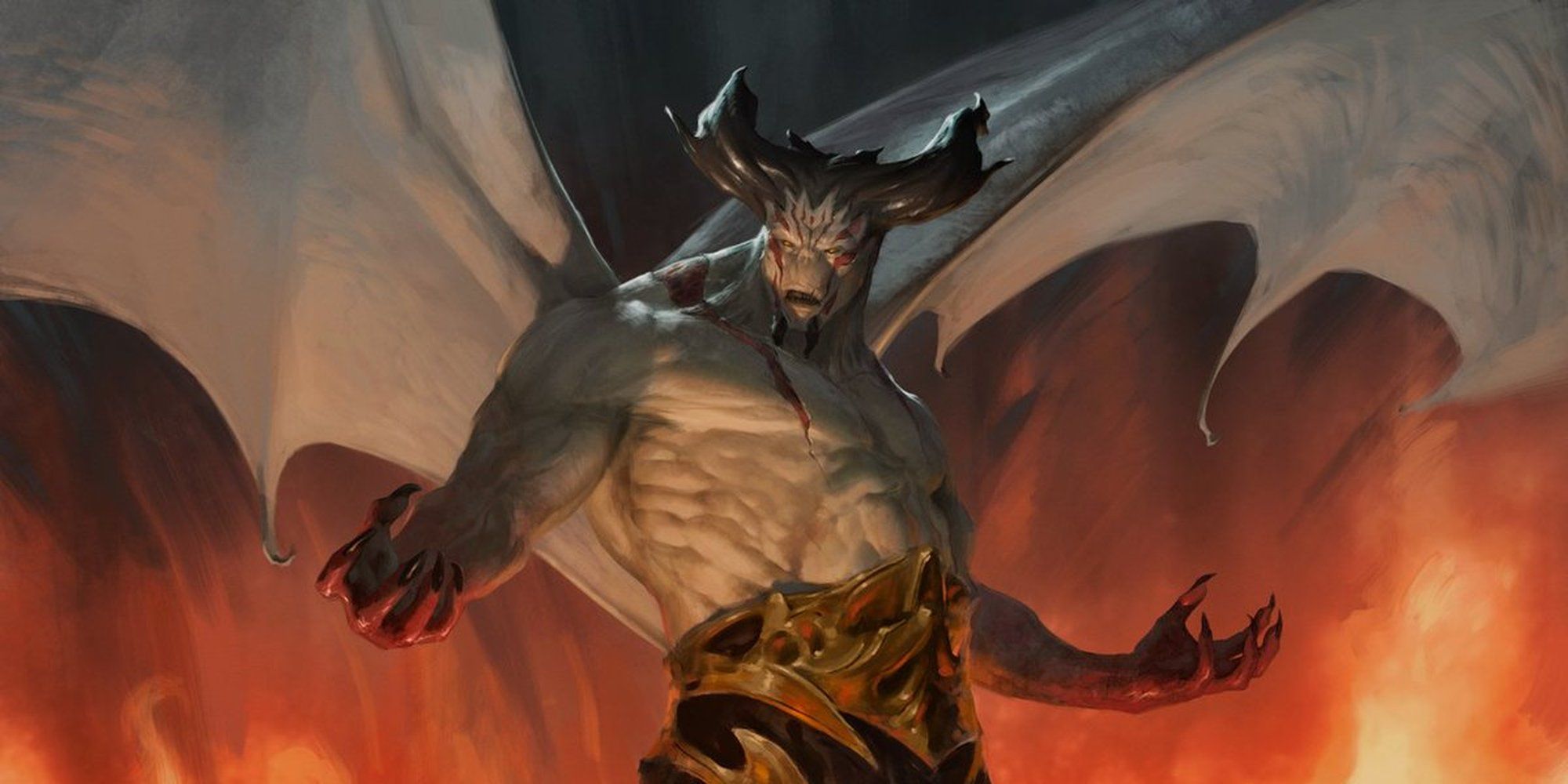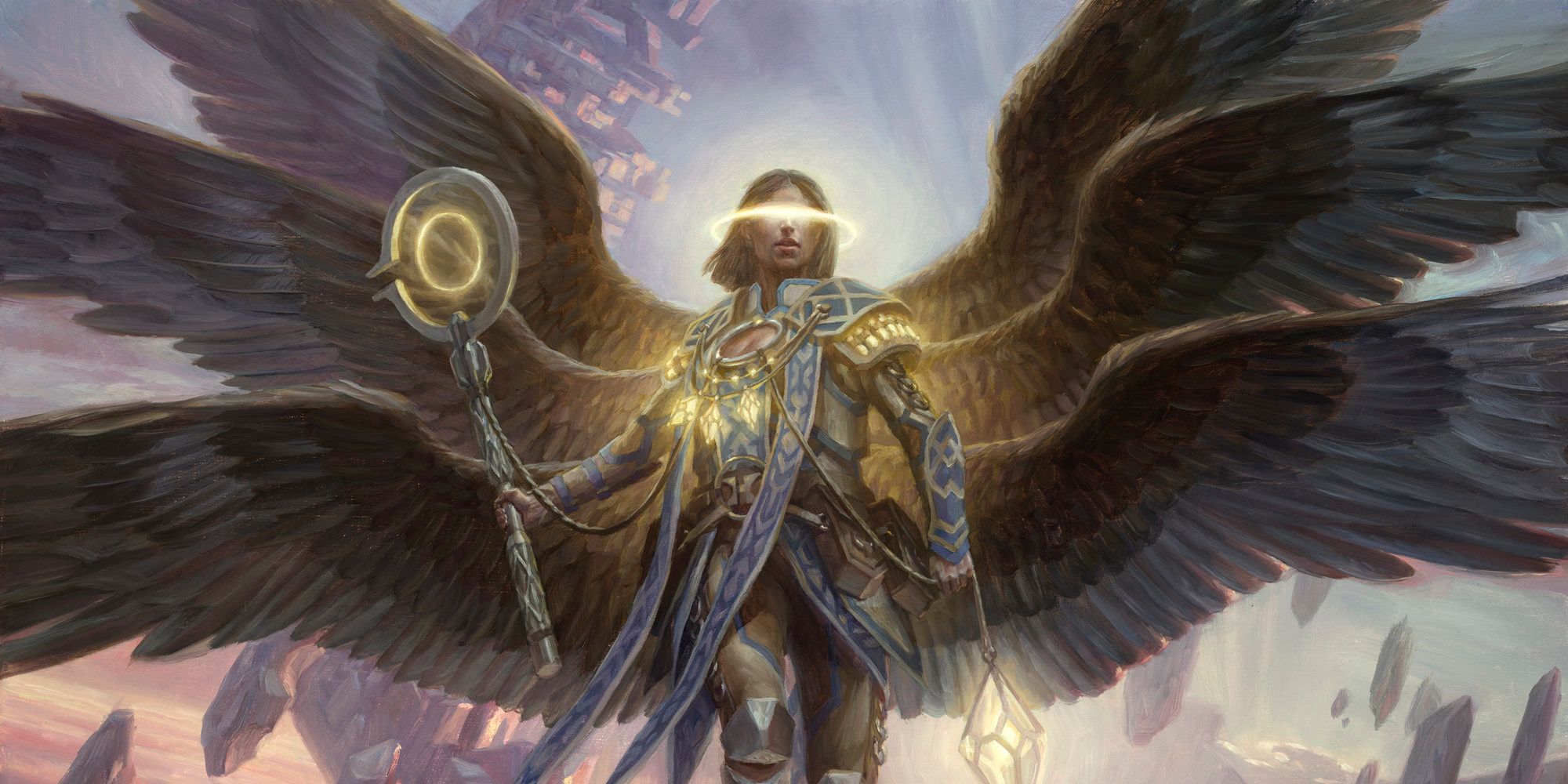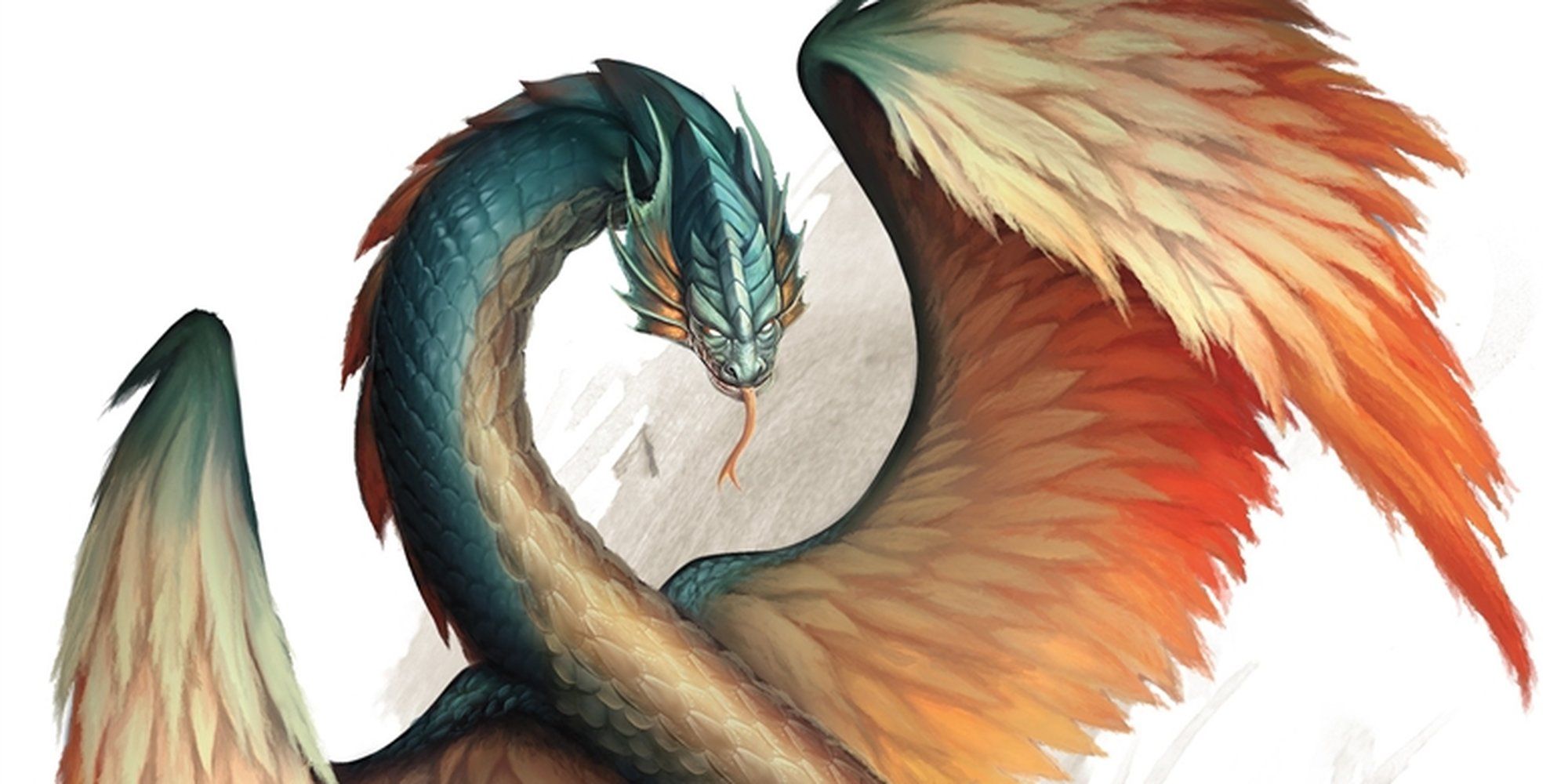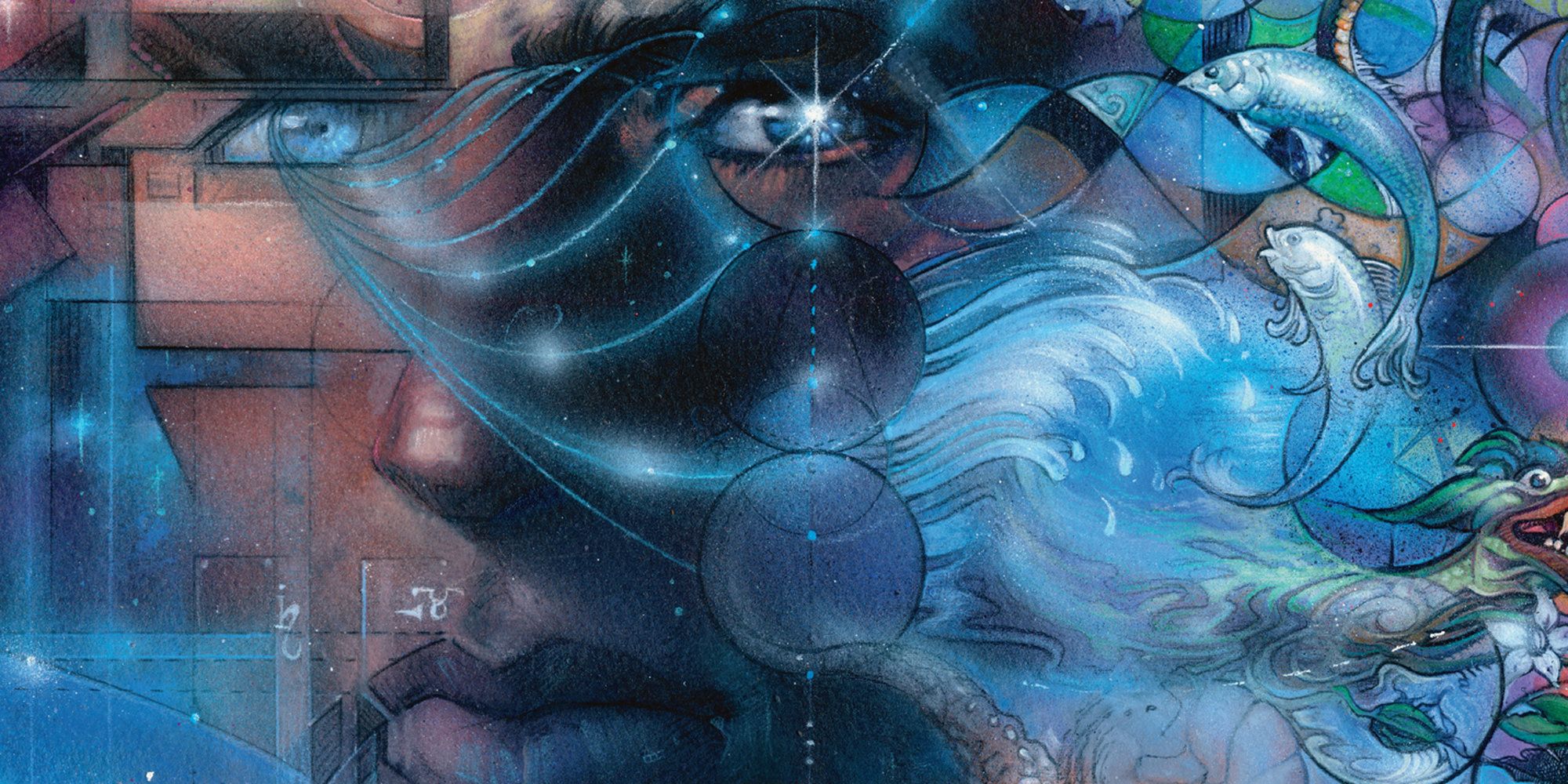Spells in Dungeons & Dragons are broken up between numerous types of magic that are dictated by the nature of a given spell. For example, spells that alter any element of a creature or object would be classified as transmutation spells.
One of the most frequently useful types of magic in D&D is the school of Conjuration. Conjuration spells allow players to create and summon a wide variety of objects and creatures to assist in combat, puzzle-solving, and social situations alike. As there are many Conjuration spells in the game, it's fair to expect that these spells won't all be equally useful. So today, we're going to examine the most useful Conjuration spells that players can use in Dungeons & Dragons!
Updated by Paul DiSalvo on August 22, 2021: The Conjuration school of magic is one of the diverse spell lists in all of D&D. Home to teleportation spells and summoning spells alike, conjuration spells can do anything from boosting mobility to offering combative assistance and improved action economy through a variety of summoning spells. Through its incredible diversity of utility, there are plenty of great conjuration spell options available to both low and high-level characters alike.
15 Find Steed
A second-level spell exclusive to Paladins, FInd Steed allows its caster to manifest a warhorse, a pony, camel, elk, or mastiff that can serve as the caster’s mount. The summoned animal is the caster’s choice of a celestial, fey, or fiend, gains an intelligence of 6, and can be telepathically communicated with by the caster. Thanks to the high movement of these mounts, this spell can greatly improve a Paladin’s mobility in battle, and it can be used to have the summoned steed carry or transport items while the party travels.
14 Find Familiar
Find Familiar is a first-level conjuration spell exclusive to Wizards that, as the name suggests, allows the caster to summon a familiar. Familiars are traditionally animal companions (though Warlocks of the Pact of the Chain have additional options), and these summons can offer their assistance in a variety of ways. While they traditionally can’t attack, they have their own turn in combat and can take actions such as the help actions, providing consistent assistance for a party.
13 Transport Via Plants
Exclusive to Druids, Transport Via Plants is among the most underrated teleportation spells in D&D. Allowing its caster to touch any large or larger plant, this spell creates a link between that plant and any other plant on the same plane of reality that the caster has either seen or touched. This spell then essentially creates a teleportation link from one plant to the other, allowing any entire planet to be traversed within a single action!
12 Summon Aberration
A fourth-level conjuration spell that was introduced in Tasha’s Cauldron of Everything, Summon Aberration can be used to manifest one of three Aberration spirits. Due to the various options this spell has, it can be quite flexible. Summoning a Slaad provides the summon with regenerative properties, range from the Beholder form, and a damaging psychic aura from the Star Spawn option.
11 Gate
A ninth-level conjuration spell, Gate is the most precise mobility spell for interplanar travel in all of D&D. While Planeshift is able to transport its caster to approximate locations on given planes, Gate allows its caster to create gates to exact locations on any plane of their choice. While gods can forbid gates from opening in their domains, Gate can effectively get a party anywhere they need to be within the vastness of the multiverse.
10 Misty Step and Dimension Door
Interestingly enough, the majority of teleportation spells in D&D's fifth edition are classified as conjuration spells. Of these teleportation spells, Misty Step and Dimension Door are among the best early options available to players, offering similar abilities at differing levels.
Misty Step is one of the earliest teleportation spells available in the game, a second-level spell that allows its caster to teleport up to thirty feet to a spot its caster can see as a bonus action.
On the other hand, Dimension Door trades accessibility for utility. A fourth-level spell has a significantly increased range of five hundred feet, can teleport its caster through walls, and can even teleport an additional creature!
9 Conjure Elemental
As far as summoning spells go, Conjure elemental sets the standard of what a player can expect. This fifth-level spell is capable of summoning an elemental with a challenge rating less than or equal to its spell level, meaning it can reliably summon an air elemental, an earth elemental, a fire elemental, or a water elemental.
The summoned creature is immediately friendly and obeys the verbal commands of its caster. Like many summoning spells, if the caster's concentration is broken, they lose control over the elemental.
8 Infernal Calling
Introduced in Xanathar's Guide to Everything, Infernal Calling is another fifth-level spell like Conjure Elemental. However, this spell has much more risk and reward involved when casting. Rather than being able to summon a creature with a challenge rating of five or less, this spell can summon a devil with a challenge rating of six or less. While this might sound great on paper, there's a catch: the demon is initially unfriendly. While the demon can hypothetically be reasoned with if there is a potential incentive for it to cooperate, or if it believes it can push its caster towards evil, this spell can very well create a problem.
7 Conjure Fey
Conjure Fey is a spell that has a great deal in common with Conjure Elemental. A sixth-level spell, Conjure Fey creates a friendly fey spirit that takes the form of any beast whose challenge rating is less than or equal to the spell's level. By default, this means that Conjure Fey can consistently summon an allied Mammoth to help one's party in the heat of battle.
Like Conjure Elemental, the summoned creature obeys the verbal commands of its caster but will stop doing so if the spell's concentration is broken.
6 Summon Greater Demon
Summon Greater Demon is a more consistent alternative to Infernal Calling that is available as a fourth-level conjuration spell. Summoning a demon of a challenge rating of five or less, the demon that is summoned initially follows the verbal commands of its caster. However, at the end of each of that demon's turns, it makes a charisma saving throw. If it succeeds this save, rather than follow orders, it will simply attack whatever non-demon creature is closest to it. Even in the worst situations, this can still cause a great deal of damage to foes, as long as one's party keeps their distance from the demon.
5 Planar Ally
A sixth-level conjuration spell for Clerics, Planar Ally allows its caster to request help from a deity or otherworldly being. This spell can potentially allow its caster to summon a specifically named creature, though this is at the DM's discretion.
Unlike the other spells on this list, there is no given challenge rating associated with what may be summoned, and said summoned creature is entirely decided by the aforementioned otherworldly being (a.k.a. the DM). Interestingly, this spell does not require the summoned creature to act in a particular manner, and it may request payment if the tasks requested of it are not in its best interest.
4 Conjure Celestial
While Conjure Celestial may appear lackluster at first glance, it is among the more reliable and versatile summoning spells in the entire game. Capable of summoning a celestial of a challenge rating of five or less, this spell is capable of summoning a Couatl. Couatls are stellar allies that are capable of casting spells and shapeshifting, effectively increasing the summoning potential of the spell.
3 Demiplane
When it comes to "reverse summoning," Demiplane is the spell of a caster's dreams. Ever wanted to send a creature elsewhere, never to be seen again? Demiplane is the eighth-level spell of one's dreams. Creating a namesake demi-plane of reality that is essentially a small empty room, after the spell ends, any creature without the means of interplanar travel that's still in the room is stuck there indefinitely!
2 Plane Shift
A major departure from the majority of the other entries on this list, Plane Shift is one of the most consistent and useful means of interplanar travel in D&D. A seventh-level spell, Plane Shift is capable of transporting up to nine total creatures (including the caster) to a plane of reality of their choice.
Planeshift can even be used as a form of un-summoning like Demiplane, forcibly banishing an unwilling foe to a completely different plane of reality! However, unlike Demiplane, this spell is much more flexible in the travel that it permits.
1 Wish
Wish isn't just one of the best conjuration spells in D&D; it's one of the best spells in the game. Period. Without question, Wish is the most flexible spell option at a player's disposal, providing them access to a seemingly infinite amount of freedom with what the spell can accomplish. Capable of being used for damage in combat, to undo effects, and revive the dead, the only real inhibitor of Wish is a player's imagination.

